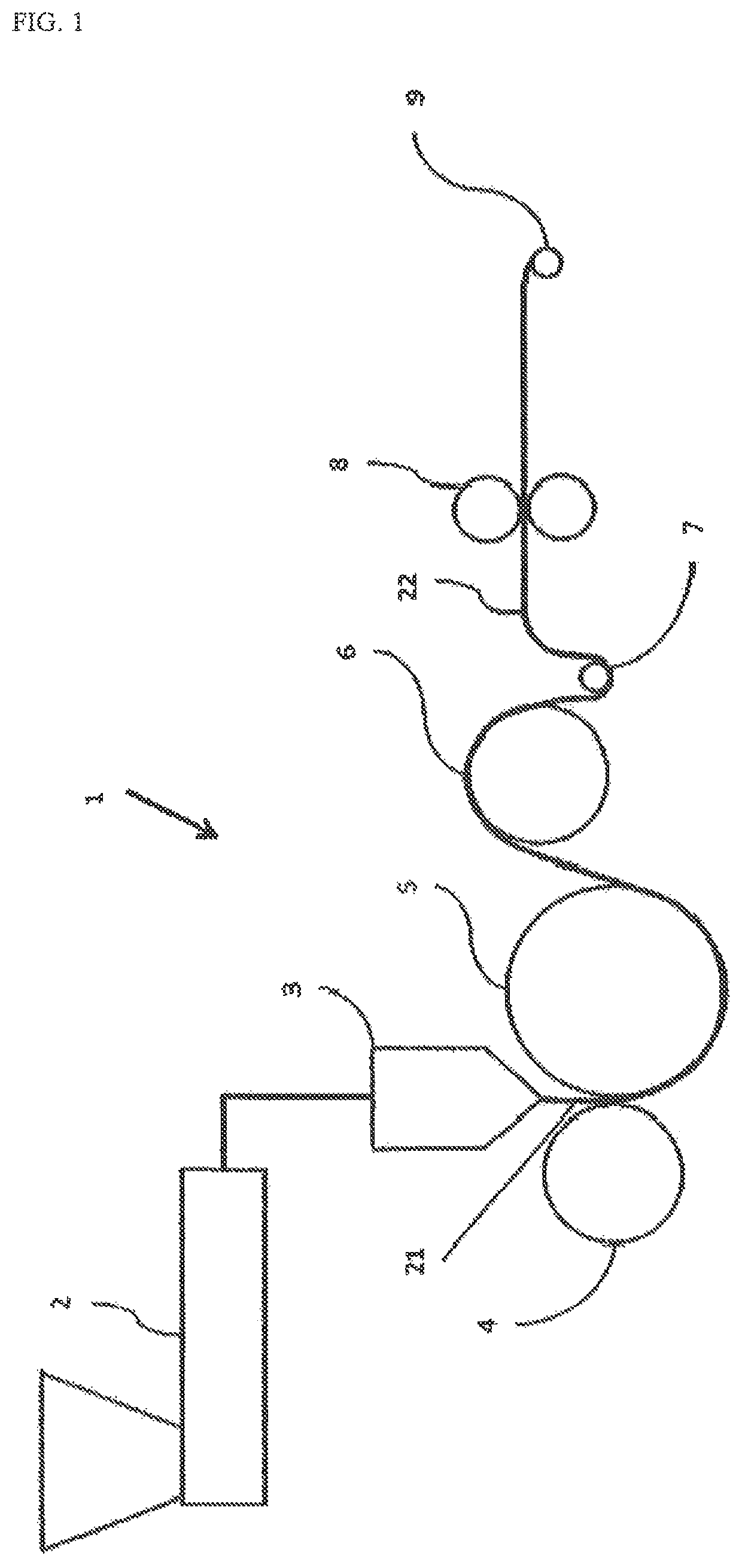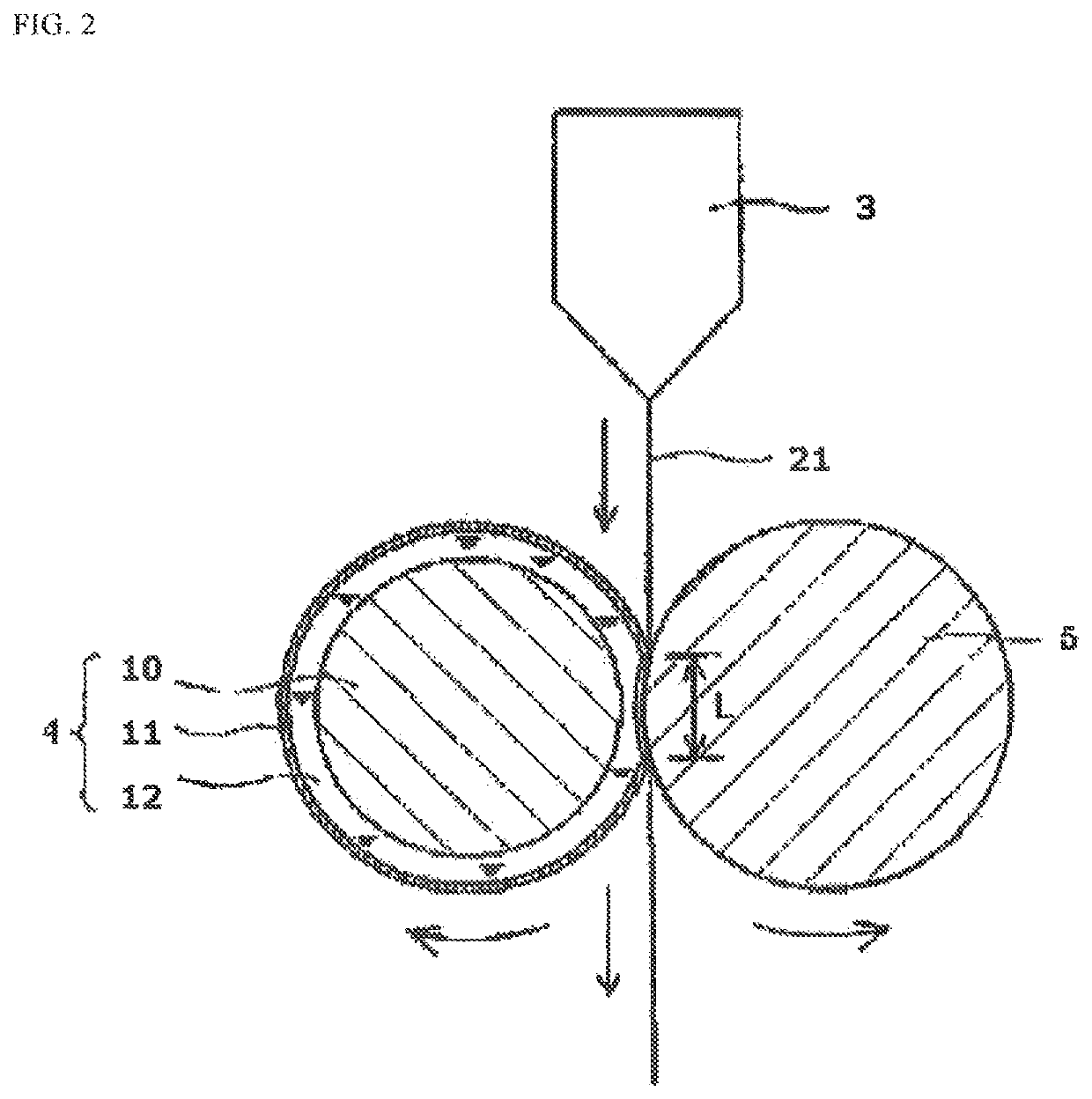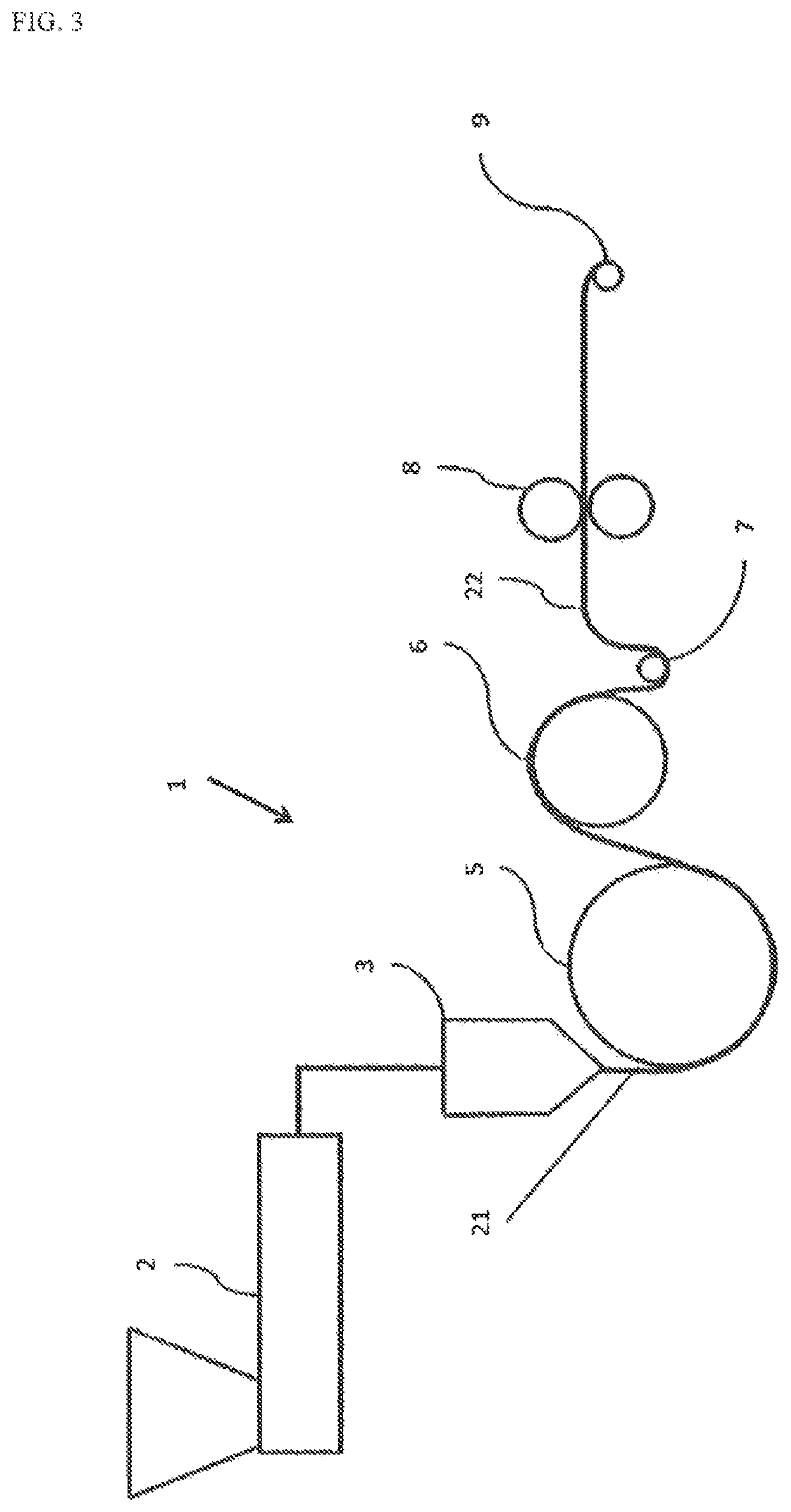Optical film, multilayer optical film including same, and method for producing optical film
a multi-layer optical film and optical film technology, applied in the field of optical films, can solve the problems of insufficient consideration of the change in the retardation due to the wavelength, difficulty in producing a film with a sufficiently small in-plane retardation, and difficulty in obtaining a film with good appearance, etc., to achieve the effect of less change in the retardation, less wavelength change, and easy production
- Summary
- Abstract
- Description
- Claims
- Application Information
AI Technical Summary
Benefits of technology
Problems solved by technology
Method used
Image
Examples
example 1
[0110]Iupilon H4000, a bisphenol A polycarbonate with a viscosity-average molecular weight of 14000-17000, was used to mold a transparent polycarbonate film with a thickness of 100 μm by a melt extrusion method via a T-die as shown in FIG. 1 at a molding temperature of 270° C., which was fed at about 260° C. and cooled between an elastic metal roller with a diameter of 300 mm and a metal roller with a diameter of 400 mm at 135° C. with a gap of 100 μm therebetween to obtain a film with a thickness of 100 μm. At this point, the linear pressure on the molten polycarbonate resin at the center parts of the two cooling rollers was 15 kgf / cm and the take-up speed was 14.5 m / min. In addition, since the thermal deformation temperature (Th) of the polycarbonate resin was 124° C., the difference from the surface temperature (Tr) of the roller was 11° C.
example 2
[0154]28 parts by mass of a polyphenylene ether-based resin (PPE) (trade name: PX100L manufactured by Mitsubishi Engineering-Plastics Corporation) and 72 parts by mass of general grade polystyrene (GPPS) (trade name: HH105 manufactured by PS Japan Corporation) were mixed to obtained a total of 100 parts by mass of a positive birefringent material, which was used to produce a film with a thickness of 200 μm by using a film prototyping device equipped with a T-die at 290° C. The prepared film was heated to 125° C. and uniaxially stretched at a stretch ratio of 2.3 times to obtain a film (film 2). The resulting sample and the film (film 1) described in Reference example below were layered using an adhesive. The evaluation results of the optical properties are shown in Table 2.
Reference Example
[0155]A film (film 1) with a thickness of 100 μm was prepared in the same manner as Example 1.
PUM
| Property | Measurement | Unit |
|---|---|---|
| wavelength | aaaaa | aaaaa |
| wavelength | aaaaa | aaaaa |
| thickness | aaaaa | aaaaa |
Abstract
Description
Claims
Application Information
 Login to View More
Login to View More - R&D
- Intellectual Property
- Life Sciences
- Materials
- Tech Scout
- Unparalleled Data Quality
- Higher Quality Content
- 60% Fewer Hallucinations
Browse by: Latest US Patents, China's latest patents, Technical Efficacy Thesaurus, Application Domain, Technology Topic, Popular Technical Reports.
© 2025 PatSnap. All rights reserved.Legal|Privacy policy|Modern Slavery Act Transparency Statement|Sitemap|About US| Contact US: help@patsnap.com



